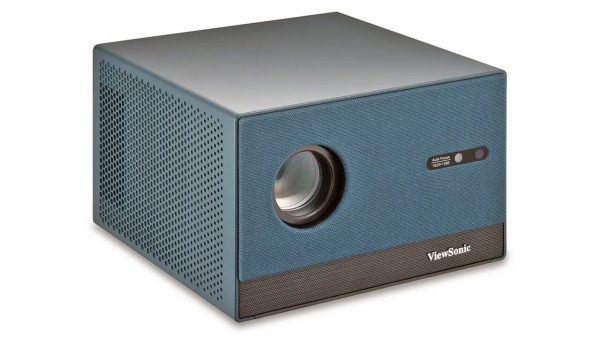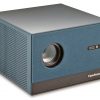Interoperability, Flexibility Will Be Keys to Successfully Protect and Distribute Digital Media
Leaders in the entertainment industry this week acknowledged the significant role digital rights management (DRM) technology plays in the distribution and use of digital entertainment, but debated the challenges it presents and the most appropriate ways to use it to benefit consumers, artists and business equally.
Sponsored by fellow Reed Elsevier, Inc. companies LexisNexis U.S., a leading provider of information and services solutions, and Variety, the leading global entertainment industry news source, the Digital Rights Management Conference held April 23 and 24 in Los Angeles featured differing opinions from a “who’s who” panel of industry insiders, entertainers and technology legal experts from international entertainment companies and organizations.
“Digital rights management technology is a classic ‘disruptive technology’ as the media industry transforms from analog to digital,” said Mitch Singer, chief technology officer for Sony Pictures Entertainment. “It was originally used to prevent theft, but to stay that course is not an option. Rather, we need to move from DRM as a ‘don’t copy’ policy to DRM as a way to create more consumer choice and develop markets that are even better than free.”
“We’re seeing a bit of a revolution with technology because now the artist can be a copyright owner and negotiate their own distribution deals, and this is one of the great benefits of copyright law today,” said Steven Page, singer and guitarist for rock band Barenaked Ladies. “In the end, it is the marketplace that should drive what happens.”
“Digital management becomes an enabler of new business and revenue models because it allows flexibility and control to both creators and distributors of content at the point where digital entertainment, consumer demand, software and online systems converge,” said Mike Walsh, a keynote speaker and CEO of LexisNexis U.S. Legal Markets. “With these great opportunities also come significant challenges.”
These comments and others from participants such as entertainer and producer Carson Daly, representatives from the Walt Disney Co., Time Warner, Inc., NBC Universal, Microsoft, Google™, LexisNexis, the U.S. Patent Office and others propelled the debate on the issue of DRM technology and the varying perspectives on it.
The rapid growth of digital distribution and consumption of entertainment has created increased access to and portability of music, movies, books and more for consumers.
This has meant new revenue streams for entertainers and the companies that represent their work. However, it has also meant greater risk for misuse and abuse of artists’ work, as well as unrealized revenue to entertainment companies as the opportunity for stealing, pirating and abusing copyrights is also greatly increased.
The issue of rights management is tangible as the growth of digital media coincides with a growth in copyright litigation. According to data from LexisNexis CourtLink, lawsuits filed over copyright infringement have gone up an average of 20% a year over the past five years and suits filed in California represent the largest component of that growth with 15% of all copyrights cases nationally filed in the state.
With this as the backdrop, the legal and technical challenges presented by DRM technology to address the tension between the interests of consumers, artists and business were the focus of debate at the conference – resulting in differing perspectives.
Differing views – expert perspectives from the conference
“People think they buy something and then they own it and have the entitlement to do anything with it they want, but this is a misperception,” said Marybeth Peters, U.S. register of copyrights. “What we really want is an appropriate balance between consumer access and copyright protection. Consumer expectation is the marketplace, and those using DRM technology should be sending a good message about how it creates more choices for consumers.”
“DRM is never going to be able to control the dissemination of high value, popular content,” said Fred von Lohmann, senior staff attorney for the Electric Frontier Foundation. “It should be about giving consumers what they want and not telling them what they can and cannot do. Companies should stop with DRM and focus on competing with ‘free’ in any number of compelling ways, including convenience, price, access, interoperability, ubiquity, higher quality and others.”
“It is the respective business models of those who advocate the strongest for and against DRM technology that drives their position, but for the rest of us, we want balance to provide choice to consumers,” said Ron Moore, director of legal services for Microsoft. “Give DRM a chance, but only what it deserves. It shouldn’t be forced into situations where it does not work for the customer.”
While the conference did not result in an agreement about the role or future of DRM technology among the diverse field of interests, it did serve as an important forum for dialog among key players about the subject of managing digital intellectual property and a reminder that the friction generated in any industry transforming into a predominately digital format.
Presenting conferences about critical topics like DRM is part of the LexisNexis Total Practice Solutions strategy for helping attorneys and their clients win by offering them the most complete set of services and information, as well as to providing corporate legal departments with Corporate Counsel Solutions to help them reduce litigation risk and cost through sound litigation management.
About LexisNexis
LexisNexis (http://www.lexisnexis.com) is a leading provider of information and services solutions, including its flagship Web-based Lexis and Nexis research services, to a wide range of professionals in the legal, risk management, corporate, government, law enforcement, accounting and academic markets. A member of Reed Elsevier (NYSE:ENL)(NYSE:RUK) (http://www.reedelsevier.com), LexisNexis serves customers in 100 countries with 13,000 employees worldwide.
About The Variety Group/Reed Business Information (RBI)
The Variety Group – Daily Variety, Daily Variety Gotham, Weekly Variety, Variety China, Variety Europe, Variety.com, 411 Publishing, Video Business and Tradeshow Week – are all owned by Reed Business Information (RBI), the largest business publisher in the U.S. RBI is a member of the Reed Elsevier Group plc (NYSE: RUK and ENL) – a world-leading publisher and information provider operating in the science and medical, legal, education and business-to-business industry sectors.























